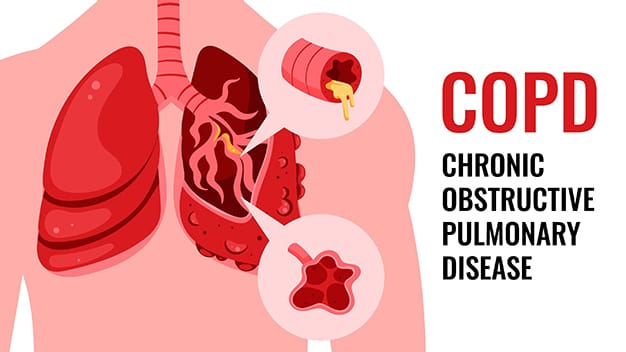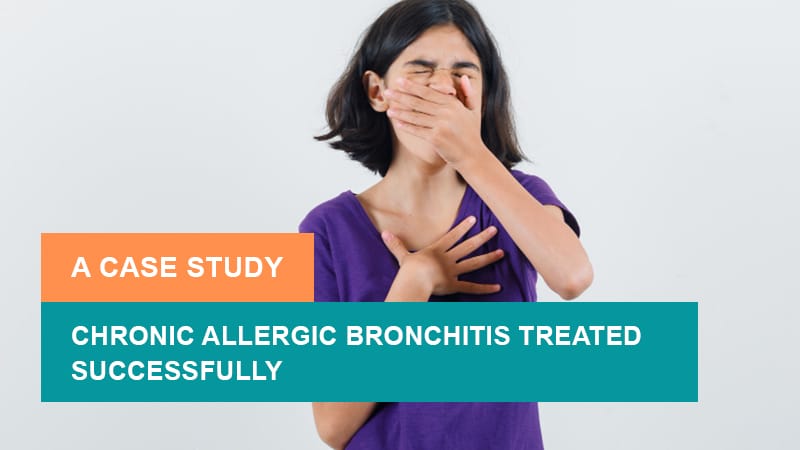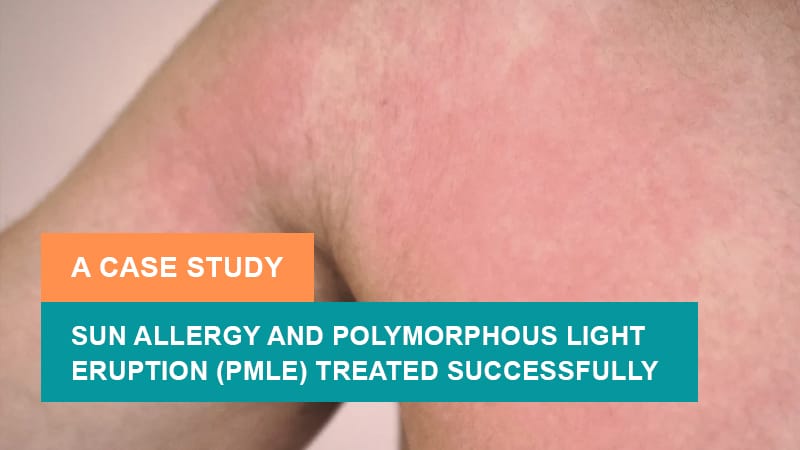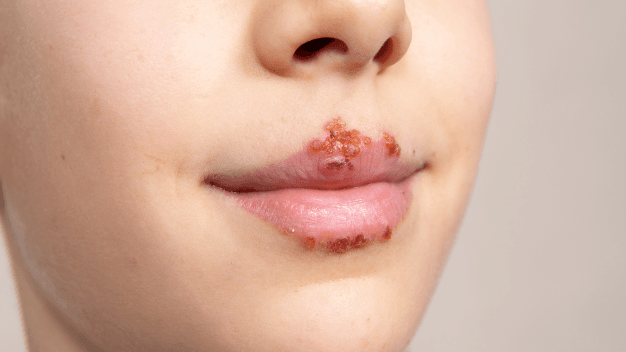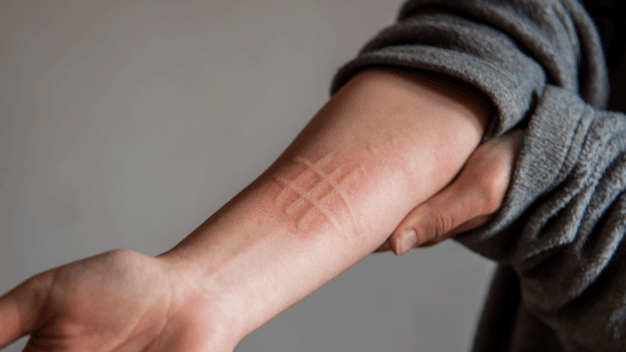On This Page
Introduction
The major burden for morbidity and early death is respiratory disorder and respiratory disorder which is the third leading cause of death worldwide is Chronic obstructive pulmonary disease (COPD). Chronic obstructive pulmonary diseases include emphysema, chronic bronchitis, and preventable, treatable disorders. Due to socio-economic development and lifestyle changes, the prevalence of Chronic obstructive pulmonary diseases has increased over the past 20 years.
In Ayurvedic classical texts respiratory diseases occur due to the involvement of respiratory channels (Pranavaha Strotas) and clinical symptoms have similarities with Kasa (Cough), Tamaka Swasa (Asthma), Rajayakshama (TB), Kshaya Roga (a degenerative disorder of lungs), etc. COPD cannot be correlated to a single Pranavaha Strotas Vyadhi (respiratory channel disorder). Still, its symptoms are associated with Tamaka Shwasa which occurs mainly by vitiation of Kapha along with Pitta and Vata.
Here, we will find out the developing strategies for the prevention of COPD by identification, reduction, and control of risk factors by use of Ayurvedic treatment like Panchakarma Procedures (internal purification of the body), Yoga procedures, Single Herbs, Diet and Lifestyle modification, etc. The treatment helps in balancing the vitiated Tridosha, which will certainly help to treat Chronic obstructive pulmonary diseases (COPD).
What is Chronic Obstructive Pulmonary Disease (COPD)?
Chronic respiratory diseases which result in difficulty in breathing are known as Chronic obstructive pulmonary diseases. In these diseases inflammation and restricted airflow occur due to damage to lungs and airways which make it hard to breathe. Two main conditions are involved in this disease: emphysema where there is damage to air sacs of the lungs and chronic bronchitis in which constant irritation and inflammation occur in airways.
Chronic Obstructive Pulmonary Disease (COPD) – As Per Ayurveda
As per Ayurveda Chronic obstructive pulmonary disease is the disorder of the Pranavaha Strotas (respiratory channels). In Ayurveda, we cannot correlate COPD with a single disorder. As per its etiology and symptoms, it can be correlated to Kasa, Rajyakshma, Tamaka Swasa, Kshaya Roga, etc. but mainly symptoms mimic Tamaka Swasa. In COPD vitiated and aggravated Kapha dosha blocks the channels of Vata (Mainly types of Vata i.e. Prana Vata and Udana Vata) causing the onset and symptoms of the disease.
Who Gets Affected by Chronic Obstructive Pulmonary Disease (COPD)?
Chronic obstructive pulmonary diseases (COPD) are more common in adults who are over 40 years old. Compared to men, women are more affected by COPD. Along with this COPD mainly affects the individuals who are smokers, exposed to industrial dust, air pollution, and chemicals. People with alpha-1 antitrypsin deficiency (AAT deficiency) as a genetic predisposition are more affected by Chronic obstructive pulmonary diseases. Any individuals with a mutation in CHRNA genes and Vitamin D deficiency are also more likely to have Chronic obstructive pulmonary diseases.
How Common is Chronic Obstructive Pulmonary Disease (COPD)?
Recent studies have revealed that around 10.3% of people aged 30-79 years have a global prevalence of COPD which can be approximately 391.9 million cases of COPD worldwide. As per surveys, 70% of cases of COPD are caused by smoking. As per a survey approximately in 2021, 3.5 million deaths worldwide occur due to Chronic obstructive pulmonary diseases. A recent modeling study hypothesized that the number of Chronic obstructive pulmonary disease cases globally will increase by 23% i.e. approximately from 2020 to 2050.
Types of Chronic Obstructive Pulmonary Diseases (COPD)
The Most Common Types of COPD are:-
- Emphysema
- Chronic bronchitis
1. Emphysema: In emphysema, breathing difficulties occur to the patient due to the damage to walls between the air sacs and the air sacs as they either destroy, collapse, overinflate, stretch, or narrow.
2. Chronic Bronchitis: In this long-term bronchitis, with excessive mucus production chronic cough occurs due to inflammation of the breathing passage of the lungs i.e. bronchi. The mucus production during cough in chronic bronchitis occurs due to swelling up of the lining in the inflammation process.
Causes of Chronic Obstructive Pulmonary Disease (COPD)
- Smoking: the primary cause of COPD, approximately in 85% of cases.
- Other lung irritants like chemicals, air pollution, etc.
- Passive smoking or secondhand smoke, i.e. smoke from other people smoking can also result in COPD.
- Alpha-1 antitrypsin deficiency (AATD): The genetic predisposition of the Alpha-1 antitrypsin deficiency (AATD) i.e. rare inherited disorder can also lead to COPD even at an early age.
- Poor growth in utero
- Premature birth
- Respiratory infection in early childhood
Causes of Chronic Obstructive Pulmonary Disease (COPD) – As Per Ayurveda
Dietary Factors:
- Food i.e. dry (Ruksha), Slimy, oozing (Abhishyandi ) in nature like yogurt (Dadhi)
- Cold food (Sheet Ahara)
- Excessive intake of kidney beans (Rajmasha), and black gram (Masha) like heavy pulses.
- Excessive intake of sesame oil
- Marshy meats
- Food that is difficult to digest
- Unboiled milk
Dietetic Habits:
- Untimely and irregular eating of food (Vishamashana).
Lifestyle Habits:
- Exposure to different types of dust, fumes, chemicals, smoke, wind, etc.
- Residing in a cold place (Sheetal Pravas)
- Using cold water (Sheetal Jala)
- Reduced physical exertion or over-exertion (Avara Vyayama or Ati Vyayama)
- Daytime sleep (Divya Swapana)
- Irregular or reversed sleep pattern
- Injury to vital parts
Genetic Factor:
- Beeja Dosha
Symptoms of Chronic Obstructive Pulmonary Disease (COPD)
- Shortness of breath
- Chronic productive cough
- Chest tightness
- Wheezing sound
- Frequent respiratory infections
- In advanced stages, patients may experience weight loss and fatigue
Symptoms of Chronic Obstructive Pulmonary Disease (COPD) – As Per Ayurveda
As per Ayurveda, the pattern of respiration found in Chronic obstructive pulmonary diseases is somewhat similar to Urdhvashwasa due to the obstruction of respiratory channels (Prana Vaha Strotas) occurring because of accumulation of the Kapha (mucous), the movement of Vayu (air) is disturbed and unable to take deep inspiration despite rapid and shallow breathing. Reference: Madhava-Nidana (ROGAVI NISCAYA) Ayurvedic Clinical Diagnosis, edited by G.D. Singhal, S. N. Tripathi, K.R. Sharma, Chaukhamba Sanskrit Pratishthan, Delhi, reprint, 2010; 104. The symptoms of COPD are as follows:
- Too long or too restricted respiration (Atisristam-Atibaddhama)
- Disturbed pattern of respiration (Kupita Shvasa)
- Shallow or frequent respiration (Alpam Alpma Shwasa)
- Respiration associated with sound and pain (Shashbdam Sashulam)
- Shortness of breath with mild activity (Kshudra Shwasa)
- Burning sensation (Daha)
- Chronic cough with mucus (Jeerna Kasa)
- Nasal congestion (Peenasa)
- Chest tightness (Uru Stambha)
Diagnosis of Chronic Obstructive Pulmonary Disease (COPD) – As Per Ayurveda
The diagnosis of COPD is based on a five-fold, eight-fold, and ten-fold diagnostic approach. As per body constitution (Prakriti) mainly Kapha and Vata individuals are prone to COPD. So, Prakriti (body constitution) assessment is done, lung tissue quality (Pranavaha Strotas Dushya) is assessed, breathing and chest expansion is assessed in measurement (Parmana), mental strength (Satva) is assessed, etc. Urine examination (Mutra Pariksha) is done as cloudy and frothy urine is present in Kapha imbalance, along with this reduced urine output indicates that Udakavaha and Pranavaha Strotas are affected. In modern diagnosis spirometry, chest X-Ray, CT-Scan, and ABG (Arterial blood gas) analysis are also done.

“Dr. Gupta’s IAFA is a pioneering center in the Ayurvedic management of various respiratory disorders like Chronic obstructive pulmonary disease (COPD). IAFA ensures good results and relief to all suffering from the distressing effects of Chronic obstructive pulmonary disease (COPD).”
Reach IAFA to get a disease free life!
– Dr. Sahil Gupta (B.A.M.S., M.H.A.)
Ayurvedic Allergy Specialist
CEO & Founder of IAFA®
At last, Easier Chronic Obstructive Pulmonary Disease (COPD) Management

Trusted by
More than 90,000 Patients

Convenient
at-Home Treatments

9.2 / 10
Customer Satisfaction Score
Chronic Obstructive Pulmonary Disease (COPD) Ayurvedic Treatment
Chronic Obstructive Pulmonary Disease (COPD) Ayurvedic treatment mainly focuses on balancing the Dosha mainly Kapha, Vata and also restoring the balance of Pranavaha Strotas (respiratory channels) through Shodhana (purificatory), Shamana (palliative), dietary regulation (Pathya- Apathya), lifestyle modification, etc. Chronic obstructive pulmonary disease is a chronic disorder that is time-consuming and requires treatment for a longer period.
We at IAFA Ayurveda provide effective purificatory and palliative therapies for Ayurvedic treatment of Chronic Obstructive Pulmonary Disease (COPD). Dr. Gupta’s IAFA is the perfect destination for treating Chronic obstructive pulmonary diseases as well as other types of respiratory disorders. The Ayurvedic approach that is used to treat Chronic obstructive pulmonary diseases is as follows:
Detoxification Therapy (Shodhana Therapy) for Chronic Obstructive Pulmonary Disease (COPD)
In the detoxification of patients with Chronic obstructive pulmonary disease, the management protocol that can be used is:-
- Use of digestives (Deepana Dravya)
- Intake of medicated oil orally (Snehapana)
- Massage and hot fomentation (Abhyanga and Ushna Sweda)
- Purgation therapy (Virechana Karma)
1. Use of Digestives (Deepana Dravya): As COPD is correlated to Shawasa Roga mainly and originates from the stomach (Amashya Udhbhava) so use of digestives (Deepana Dravya) specifically dry (Ruksha) in nature helps to remove toxins (Ama) and helps to enhance digestive fire (Agni).
2. Intake of Medicated Oil Orally (Snehapana): In COPD, Kapha obstructs the passage of Vayu, and the obstructed Vayu moves in the opposite direction (Pratiloma gati). Intake of medicated oil helps to remove this obstruction of Kapha and wrong direction movement of Vayu.
3. Massage and Hot Fomentation (Abhyanga and Ushna Sweda): By oil massage (Abhyanga) and by hot sudation, Kapha is then directed to Kostha (stomach) and is expelled out by purgation in the next step.
4. Purgation Therapy (Virechana Karma): Therapeutic purgation done in Chronic obstructive pulmonary disease patients to remove mainly Kapha and Pitta from the body and help in Anuloma Gati of Vata. Purgation therapy mainly helps in Pitta-dominant COPD by reducing systemic inflammation and enhancing lung health via the gut-lung axis. Recent studies have revealed that gut detoxification can positively affect the lungs as microbiota has a critical role in mediating immune responses in the lungs.
5. Emetic Therapy (Vamana): For expelling excessive Kapha from the patient of COPD, controlled therapeutic vomiting is done. Emetic therapy helps in the removal of excessive mucus (Kapha) from the respiratory channels (Pranavaha Strotas), one of the culprits behind productive cough and congestion in COPD, and thus helps in improving lung capacity, and reduces breathlessness by decongesting airways.
6. Nasal Therapy / Intra Nasal Instillation (Nasya): Medicated oil or powder is administered through the nostril. Using Nasal therapy in COPD balances Kapha Dosha and helps in clearing nasal passage, reduces inflammation, and strengthens the function of respiratory channels (Pranavaha strotas).
7. Medicated Smoke Inhalation (Dhumapana): To reduce Kapha accumulation medicated herbal smoke is inhaled. Dhumapana relieves chest heaviness by clearing mucus from the airways and reduces breathlessness. It also exhibits expectorant activity and acts as a natural bronchodilator thus beneficial in COPD.
Herbs for Chronic Obstructive Pulmonary Disease (COPD)
Herbs for Chronic Obstructive Pulmonary Disease (COPD) Ayurvedic treatment includes Shunthi (Zingiber officinalis), Ela (Elettaria cardamomum), Agnimantha (Premna mucronata), Ativisha (Aconitum heterophyllum), Aragvadha (Cassia fistula), Rasona (Allium sativum), Haridra (Curcuma longa), Vasaka (Adhatoda vasica), Karja Beeja (Pongamia pinnata seeds), Hingu (Ferula narthex), Yastimadhu (Glycyrrhiza glabra), Tulsi (Ocimum sanctum), Pippali (Piper longum), Shirish (Albizia lebbeck), etc.
These herbs possess antimicrobial, bronchodilator, Kapha pacifying, immune-modulator, Antihistaminic, anti-inflammatory, antioxidant, bioenhancer, expectorant, mucolytic, detoxifying, and Kapha and Vata Pacifying properties with active ingredients like vasicine in Vasa, curcumin in Haridra, etc. They help in relieving COPD by reducing airway obstruction, reducing airway inflammation, enhancing lung function, etc.lp in strengthening digestive fire (Agni), detoxify the blood, improve immunity, reduce Pitta imbalance and prevent inflammation, etc.
Gem Therapy for Chronic Obstructive Pulmonary Disease (COPD)
Few stones are recommended to wear in Chronic obstructive pulmonary disease (COPD) as per Vedic Astrology. These stones can be worn after proper consultation with an astrologer as per your birth date, Zodiac sign, etc. to get only benefits.As per astrology, Pukhraj (Yellow Topaz), Blue Sapphire (Neelam), Red Coral (Moonga), and Amethyst can be worn as per your natal chart if you are suffering from Chronic obstructive pulmonary disease (COPD) These stones help reduce stress, and inflammation, enhance oxygen flow, improve blood circulation, and strengthen the respiratory and immune systems.
Diet and Lifestyle Guidance (Pathya-Apathya) for Chronic Obstructive Pulmonary Disease (COPD)
According to Ayurveda, if your diet is correct then medicine is of no use because a good gut is considered as the basis of a healthy individual. So, by giving attention to our daily diet, we not only get relief from the diseases from which we suffer but also avoid the upcoming diseases. Below we mention some dietary and lifestyle guidelines that one can follow for Chronic obstructive pulmonary disease (COPD):
What to Do (Pathya) with Chronic Obstructive Pulmonary Disease (COPD)?
- Kapha pacifying foods like a warm fresh diet (Ushana Ahara) that is low in saturated fat should be taken.
- Lung-strengthening food like cow’s Ghee (Go Ghrita), Honey (Madhu), holy basil (Tulsi), etc
- Plenty of whole grain food and vitamin C-rich fruits like oranges, Amla, guava, etc should be taken.
- A regular time of sleeping and awakening
- Use of Katu (pungent), Lavana (salty), Snigdha (oily), and Laghu Ahara (light food) like Karvellaka, gourd, bottle gourd, Methi, Spinach, garlic, ginger, Patola, Shigru, etc.
- Take lukewarm water (Skoshana Jala) early in the morning.
What to Avoid (Apathya) in Chronic Obstructive Pulmonary Disease (COPD)?
- Alcohol and smoking should be avoided.
- Avoid excessive use of cauliflower, potatoes, tomatoes, etc.
- Avoid excessive preparation of rice flour (Godhuma), sweets (Madhura Rasa), curd (Dadhi), whole milk, black gram (Masha), coconut oil (Narikel Taila), fermented and sour food (Amla Dravya), etc.
- Avoid the use of cold drinks, refrigerated food articles, etc.
- Irregular eating habits should be avoided.
- Avoid heavy meals (Guru Bhojana)
- Avoid incompatible food (Virrudha Aahara)
- Processed food and junk food should be avoided.
- Anger and anxiety (Krodha and Shoka) should be avoided.
- Exposure to excessive cold (Hima)
Yoga Asanas for Chronic Obstructive Pulmonary Disease (COPD)
Various Yoga Asanas like Easy pose (Sukhasana), Cobra pose (Bhujangasana), Bridge pose (Setu Bandha Asana), Half-spinal pose (Ardha Matsyendrasana), Cat-cow pose (Marjariasana), Shavasana, Shalabhasana, Deep breathing technique (Pranayama), Bellows breathing (Bhastrika Pranayama) etc. can be done in Chronic obstructive pulmonary disease (COPD).
These Yogic Asanas help in balancing, improving lung capacity, strengthening respiratory muscles, improving lung efficacy, enhancing oxygen exchange, reducing breathlessness, etc.
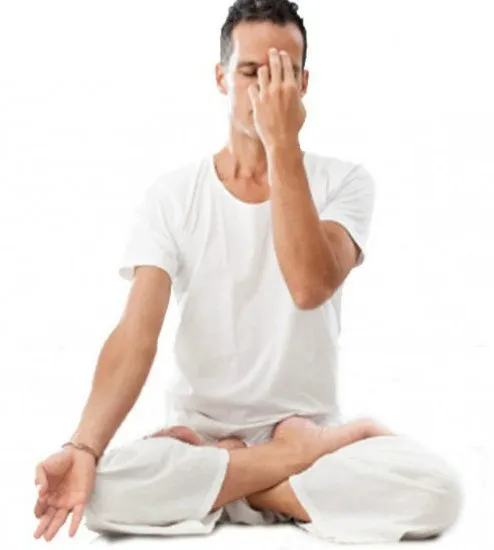
Frequently Asked Questions
Question: What are the Common Symptoms of COPD?
Answer: Shortness of breath, especially through physical activities, chest congestion, fatigue, and chronic cough with mucus are the common symptoms of COPD.
Question: Can COPD be Cured?
Answer: With lifestyle changes like quitting smoking, using Ayurvedic treatment, maintaining a healthy diet, and avoiding lung irritants one can cure COPD.
Question: How to Get Rid of Chest Congestion Fast?
Answer: To get quick relief from chest congestion, do breathing exercises (Pranayama) like Bhastrika and Anuloma-Viloma, take steam inhalation with holy basil, eucalyptus oil, intake of turmeric milk, etc.
Question: How Do You Deal with COPD Naturally?
Answer: COPD can be managed naturally by detoxification therapy (Panchkarma), use of Ayurvedic herbs, steam therapy, dietary changes, etc.
Question: How to Treat COPD Naturally?
Answer: To treat COPD naturally lung detoxification, ayurvedic formulations along with lifestyle adjustments can be done.
Question: How to Get Rid of Emphysema?
Answer: By purgation therapy (Virechana), use of herbs, Pranayama, Yoga, etc one can get rid of emphysema.
References
- Varsakiya, Jitendra & Goyal, Mandip. (2017). Chronic Obstructive Pulmonary Disease (COPD): critical review from Ayurveda perspective. Journal of Ayurvedic and Herbal Medicine. 3. 10. 31254/ jahm. 2017. 3208.
- M, Aswathy & Madhavan, Jithesh. (2024). Ayurvedic management of Chronic Obstructive Pulmonary Disease using the treatment principles of tamaka swasha – A case report. Kerala Journal of Ayurveda. 3. 10. 55718/ka. 326.
- Guo R, Pittler MH, Ernst E. Herbal medicines for the treatment of COPD: a systematic review. Eur Respir J. 2006 Aug; 28 (2): 330- 8. doi: 10. 1183/ 09031936. 06. 00119905. PMID: 16880367.
- Lyu YR, Lee SW, Kim SY, Han HB, Yang WK, Kim SH, Jung IC, Kwon OJ, Kim AR, Kim J, Lee MY, Park YC. Herbal Medicines for the Treatment of Chronic Obstructive Airway Diseases (Asthma or Chronic Obstructive Pulmonary Disease): A Prospective Observational Study. Evid Based Complement Alternat Med. 2022 May 29; 2022: 3485757. doi: 10. 1155/ 2022/ 3485757. PMID: 35677382; PMCID: PMC- 9168097.
- Gupta A, Gupta R, Sood S, Arkham M. Pranayam for Treatment of Chronic Obstructive Pulmonary Disease: Results from a Randomized, Controlled Trial. Integr Med (Encinitas). 2014 Feb; 13 (1):26-31. PMID: 26770079; PMCID: PMC- 4684118.
- Bollmeier SG, Hartmann AP. Management of chronic obstructive pulmonary disease: A review focusing on exacerbations. Am J Health Syst Pharm. 2020 Feb 7; 77 (4): 259- 268. doi: 10. 1093/ ajhp/ zxz306. PMID: 31930287; PMCID: PMC- 7005599.
- Devine JF. Chronic obstructive pulmonary disease: an overview. Am Health Drug Benefits. 2008 Sep;1 (7): 34- 42. PMID: 25126252; PMCID: PMC- 4106574.
- Agustí A, Celli BR, Criner GJ, Halpin D, Anzueto A, Barnes P, Bourbeau J, Han MK, Martinez FJ, Montes de Oca M, Mortimer K, Papi A, Pavord I, Roche N, Salvi S, Sin DD, Singh D, Stockley R, Lopez Varela MV, Wedzicha JA, Vogelmeier CF. Global Initiative for Chronic Obstructive Lung Disease 2023 Report: GOLD Executive Summary. I am J Respir Crit Care Med. 2023 Apr 1; 207 (7): 819- 837. doi: 10. 1164/ rccm. 202301- 0106PP. PMID: 36856433; PMCID: PMC- 10111975.
Seek Expert Advice
Dr. Gupta’s IAFA is a pioneering center in the Ayurvedic management of various respiratory disorders like Chronic obstructive pulmonary disease (COPD). IAFA ensures good results and relief to all suffering from the distressing effects of Chronic obstructive pulmonary disease (COPD).
Visit IAFA and feel the true sense of health through Ayurveda!!! For personalized treatment of Chronic obstructive pulmonary disease (COPD), Book your appointment now!!!
Was this Page Helpful?
So, IAFA’s Root-Cause Treatment for Chronic Obstructive Pulmonary Disease (COPD) is Just 3 Steps Away!

01. Connect With Us
Share your history of illness or Book your appointment

02. Consult With Us
Dr. Gupta a certified Ayurvedic Allergist Consultant

03. Root Cause Treatment
Get an accurate diagnosis, medicines, diet & lifestyle change
Real Case Studies – Successfully Treated Patients
Real Case Studies of Successfully Treated Patients from All Around the World by IAFA Ayurveda®

9 Year Old Female Patient Recovered from Chronic Allergic Bronchitis – A Case Study
This case study presents a 9-year-old female patient who has successfully recovered…

12-Year-Old Child Recovered from Sun Allergy and Polymorphous Light Eruption (PMLE) – A Case Study
This is a case study of a 12-year-old child who has successfully…

40-Year-Old Female Patient Recovered from Dyshidrotic Eczema and Onychomycosis – A Case Study
This case study highlights the successful recovery of a 40-year-old female patient…

40-Year-Old Female Patient Recovered from Urticaria and Angioedema – A Case Study
This case study focuses on a 40-year-old female patient who has successfully…
Read More Articles

Herpes Simplex Virus (HSV)
Explore Ayurvedic treatment for Herpes Simplex Virus (HSV). Learn about its causes,…

Dysbacteriosis (Dysbiosis)
Explore Ayurvedic treatment for dysbacteriosis (dysbiosis), its causes, symptoms, and natural treatment…

Dermatographia
Explore Ayurvedic treatment for Dermatographia (Dermatographism), including its causes, symptoms, and herbs…

